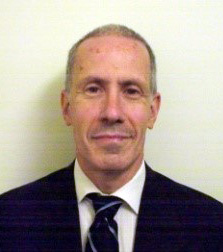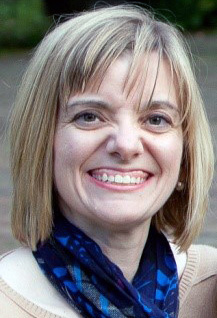- About Archives
- About SAA
- Careers
- Education
- Publications
- Advocacy
- Membership
Jeremy Brett is the Processing Archivist as well as the Curator of the Science Fiction & Fantasy Research Collection at Texas A&M University. He received his M.L.S. and his M.A. in History from the University of Maryland-College Park, and a B.A. in History from George Washington University. In addition to Texas A&M, he has also worked at various times for the Wisconsin Historical Society, the National Archives and Records Administration-San Bruno, the University of Wisconsin-Milwaukee, and the University of Iowa. He has also been a consultant for the Council of State Archivists. His research and professional interests include zines and zine culture, science fiction, archives as sources and tools of social justice and change, and archival advocacy. He is the immediate past Senior Co-Chair of the Issues & Advocacy Roundtable and has been either Chair or member of the Steering Committee since 2010. He is also a member of SAA’s Committee on Archives and Public Policy and, in addition, has been involved for a number of years with the Midwest Archives Conference.
I believe that the Privacy and Confidentiality Roundtable is one of the most vital and important organizations within SAA. It has always provided the broader membership with an effective space in which to exchange opinions and take actions concerning issues that impact us all as archivists and as citizens. I want to ensure that the Roundtable will continue this tradition of member engagement and information sharing, and will strive to uphold the interests and strongly-held beliefs of ourselves and our fellow archivists, always seeking to promote and preserve the crucial right of privacy so important to the continuation of a healthy democratic society.
 Biographical Note
Biographical NoteDaniel McCormack has served as the archivist/records manager for the Town of Burlington, Massachusetts, since 2002. In that position he is primarily responsible for the town’s public health, personnel, and municipal business records. Prior to serving in Burlington he was a reference librarian at the Brockton (MA) Public Library and a newspaper reporter. A member of SAA since 1999, he previously served as the Lone Arrangers Roundtable liaison to the Standards Committee. Currently he is a member of the National Disaster Recovery Fund for Archives Grant Review Committee.
Privacy and confidentiality matters are a constant consideration for archivists and all of us are responsible for helping shape these issues. Since 2002 I have navigated the changing implications of privacy considerations and protections at the local level. As a member of the steering committee I would work to keep concerns over privacy in the forefront of what we do, while helping to clarify SAA’s position on these issues.
We all are impacted by the increased and enhanced use of new technologies and the changing ramifications of new laws on our concepts of confidential information. On behalf of archivists and other records professionals this roundtable needs to be in the vanguard and should continually explore and monitor the changing landscape of privacy. We must continue to facilitate discussions with, and serve as a resource to, other sections and roundtables on these issues. Furthermore, we could perform a great service to the profession and to related professions by serving as a clearinghouse for access and privacy policies.
We need the involvement of as many roundtable members as possible if we are going to play an active role on these issues. Recent roundtable activities, such as the “Choose Privacy Week,” initiative, the Privacy and Confidentiality Reader edited by Menzi Behrndt–Klodt and Peter Wosh as well as discussions of the NSA surveillance programs at last year’s meeting, are good examples of how we can inform the profession on these matters. Archivists bring principles, training, and an experience-driven perspective to privacy issues. And this roundtable must continue to take the lead in fostering that role.
 Biographical Note
Biographical NoteJudith A. Wiener, MA, MLIS, is an associate professor and the assistant director for collections and outreach at The Ohio State University Health Sciences Library. One of her main responsibilities is serving as the head curator of the organization's Medical Heritage Center. She earned a BA in History at Wheeling Jesuit University, a MA in History with a concentration in public history at Wright State University, and a MLIS from Kent State University. She is an outgoing steering committee member of the Science, Technology, and Health Care Roundtable of SAA, a member of the SAA 2015 Host Committee, the immediate past president of the Society of Ohio Archivists, and served as a past president of the Ohio Academy of Medical History.
Her current research interests include special collections administrative issues, particularly in relation to health sciences archival institutions and central Ohio health sciences history. She has published, presented, and served as a project consultant on the topic of the ethical and legal obligations archivists face while protecting privacy in various archival settings.
As an archival professional working at an academic medical center for the last 15 years, I am keenly aware of the challenges posed by privacy and confidentiality-sensitive materials within special collections. My interest in serving on the P&C steering committee stems from my interest and commitment to helping archivists maintain and balance the ethical and professional fine line between providing access to materials, while protecting the privacy of those whose lives are reflected within our collections. I am also enthused by the opportunity to advocate for the historical record’s best interests while providing our members with practical and common-sense solutions to be effective stewards of such materials.